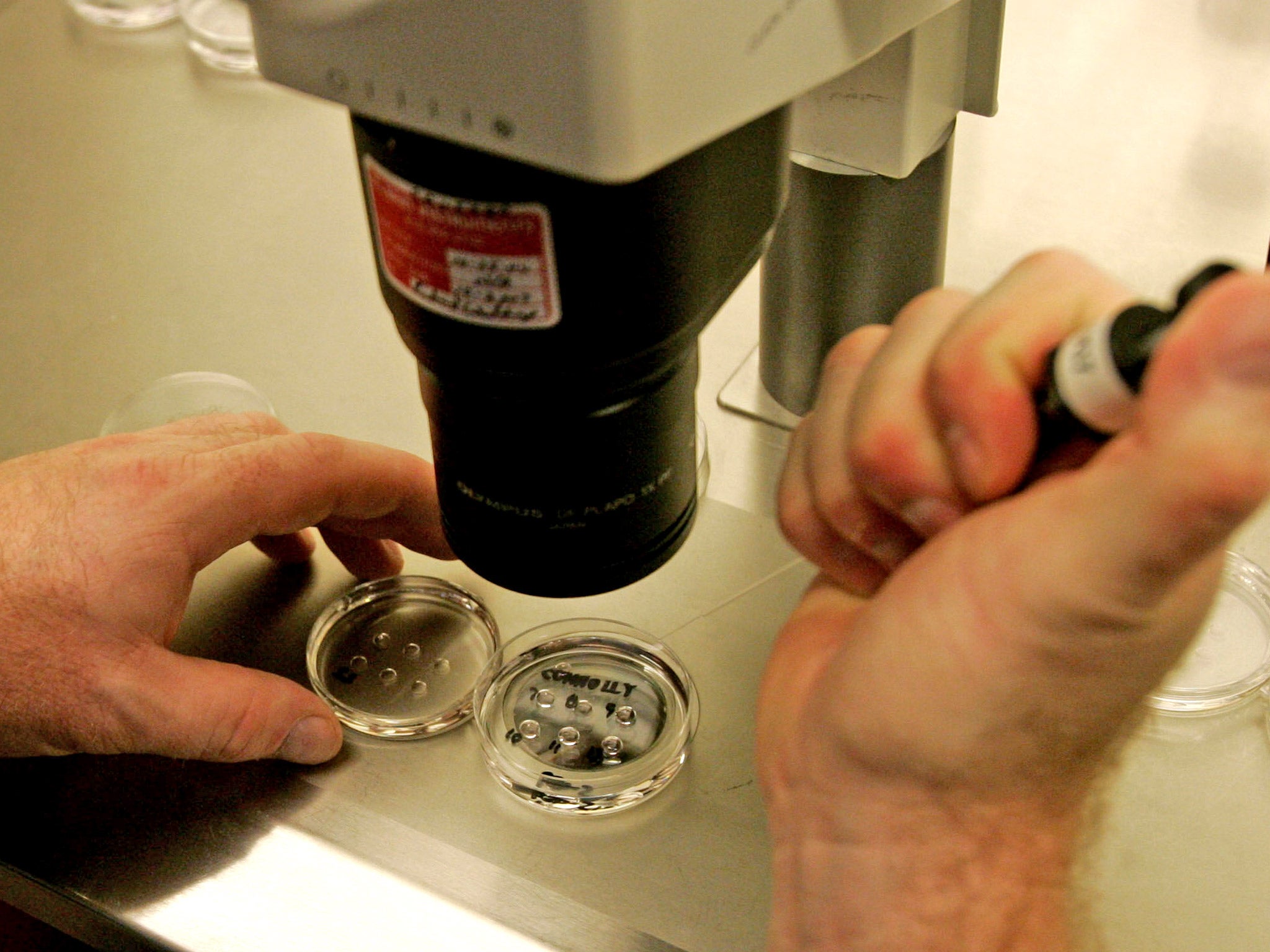UK first: MPs to vote on three-parent IVF treatment
Techniques to prevent mothers passing on mitochondrial diseases causes designer-baby fear

Babies born using a fertility technique that takes genetic material from three people will never be able to discover the identity of the egg donor, according to new rules announced by the Government tomorrow.
MPs are to vote on whether to make the UK the first country in the world to legalise “three-parent IVF” – which takes genetic material from a mother, father and a female donor in order to prevent women passing deadly mitochondrial diseases to their children.
Although children born using the technique can never identify the woman donating their healthy DNA, they will be allowed access to “limited, non-identifying information” about the donor. This contrasts with existing rules that allow children born from standard sperm and egg donors to trace their biological parents.
The rules placed before Parliament yesterday state that the Human Fertilisation and Embryology Authority, the fertility regulator, must assess each case for a significant risk of disability or serious illness before giving approval for three-parent IVF. This is likely to mean that as few as 10 cases a year are approved.
Fertility clinics will need a new licence to offer the technique. One regulation also states that any woman donating her egg would not be related to the child.
The regulations, which form The Human Fertilisation and Embryology (Mitochondrial Donation) Regulations 2015, come into force on 29 October next year.
Women at risk of passing defective mitochondria, the microscopic power stations in nearly every cell of the body, to their children will then be able to have their defective DNA replaced with that of a healthy woman. Scientists at Newcastle University have pioneered research they hope will be used for the first time next year. One in every 6,500 babies has severe mitochondrial disease and it is hoped the new technique will prevent cases such as that of Sharon Bernardi, who lost all seven of her children to a rare genetic mitochondrial disease.
Two techniques are being trialled that both involve taking DNA from a couple and using the healthy mitochondria from a female donor. The pronuclear transfer method involves fertilising two eggs and moving the combined parents’ DNA into the fertilised donor egg, whereas spindle transfer involves replacing the nuclear DNA from an egg with unhealthy mitochondria and placing it into an egg with healthy mitochondria.
Although experts are unclear which method is safer or more effective, the team at Newcastle University is more advanced with the pronuclear method.
Professor Doug Turnbull, from Newcastle University, told BBC News online: “I’m delighted that [the Bill is] being moved forward to the next stage. It’s a long process but it’s great news. We want to apply for a license next year and hope to do it [the procedure] in 2015.”
Opponents of the new law said it is unethical to make babies with DNA from three people and that it represents a “slippery slope”.
Public health minister Jane Ellison said: “The Government considers that the time is now right to give Parliament the opportunity to consider and vote on these regulations.”
Dr David King, from the campaign group Human Genetics Alert, said: “This is high-tech medicine at its worst and most unnecessary.
“Medical researchers are crossing the crucial ethical line that will open the door to designer babies based on scientific misinformation and ignoring majority public opposition.
“There are already safe and reliable ways to avoid these conditions, so why put the child’s health at risk purely so that mothers can be genetically related to them?”
Join our commenting forum
Join thought-provoking conversations, follow other Independent readers and see their replies
Comments